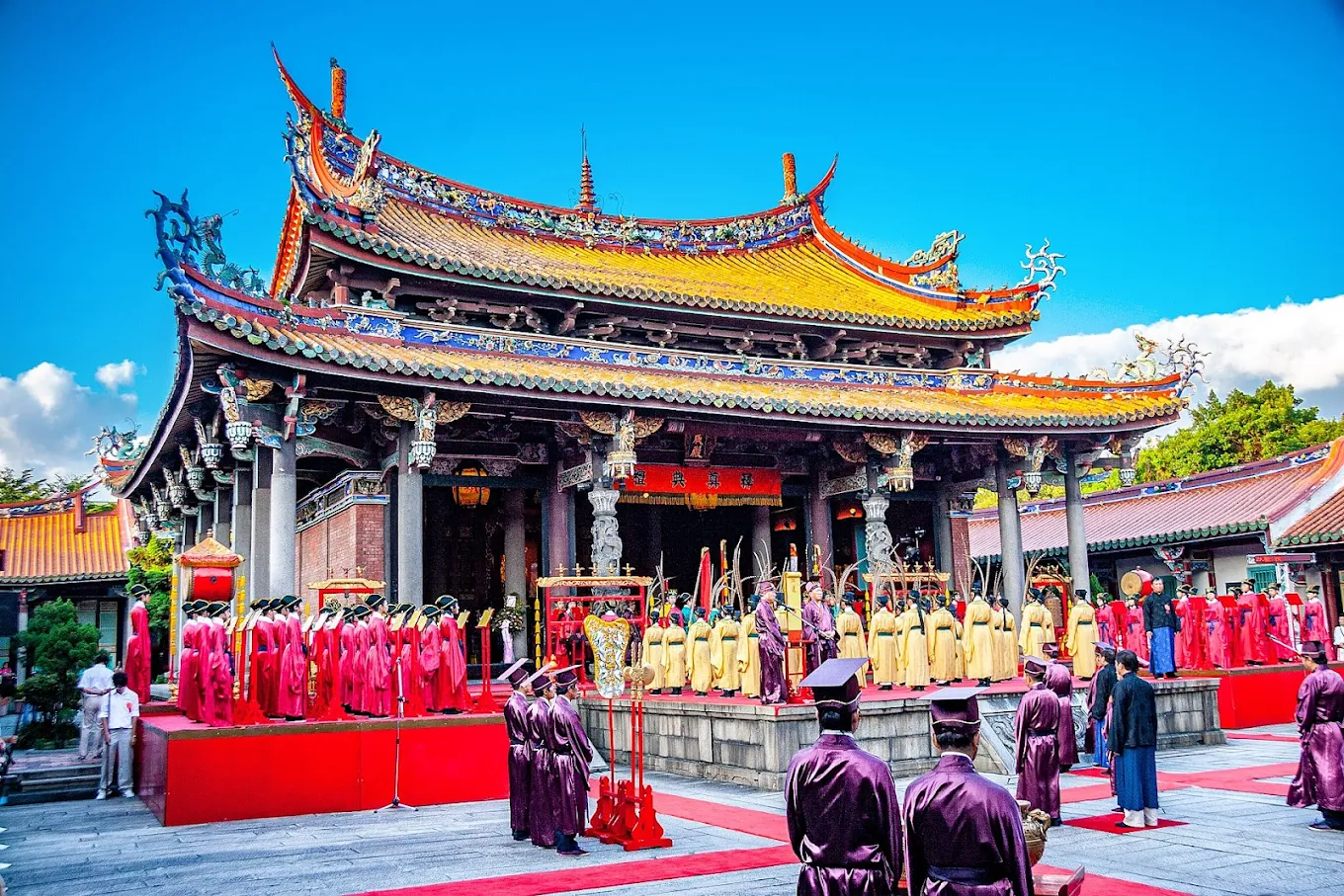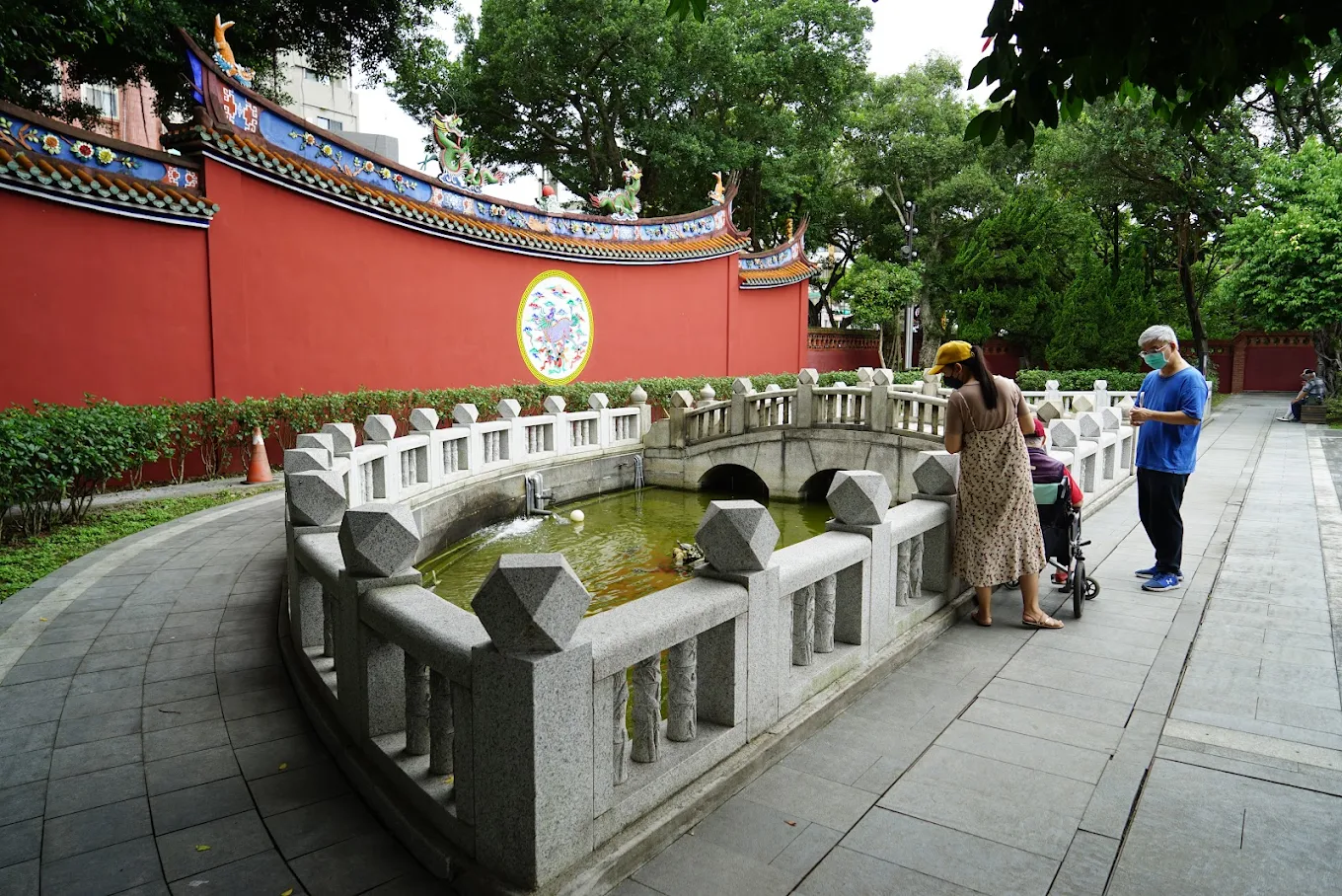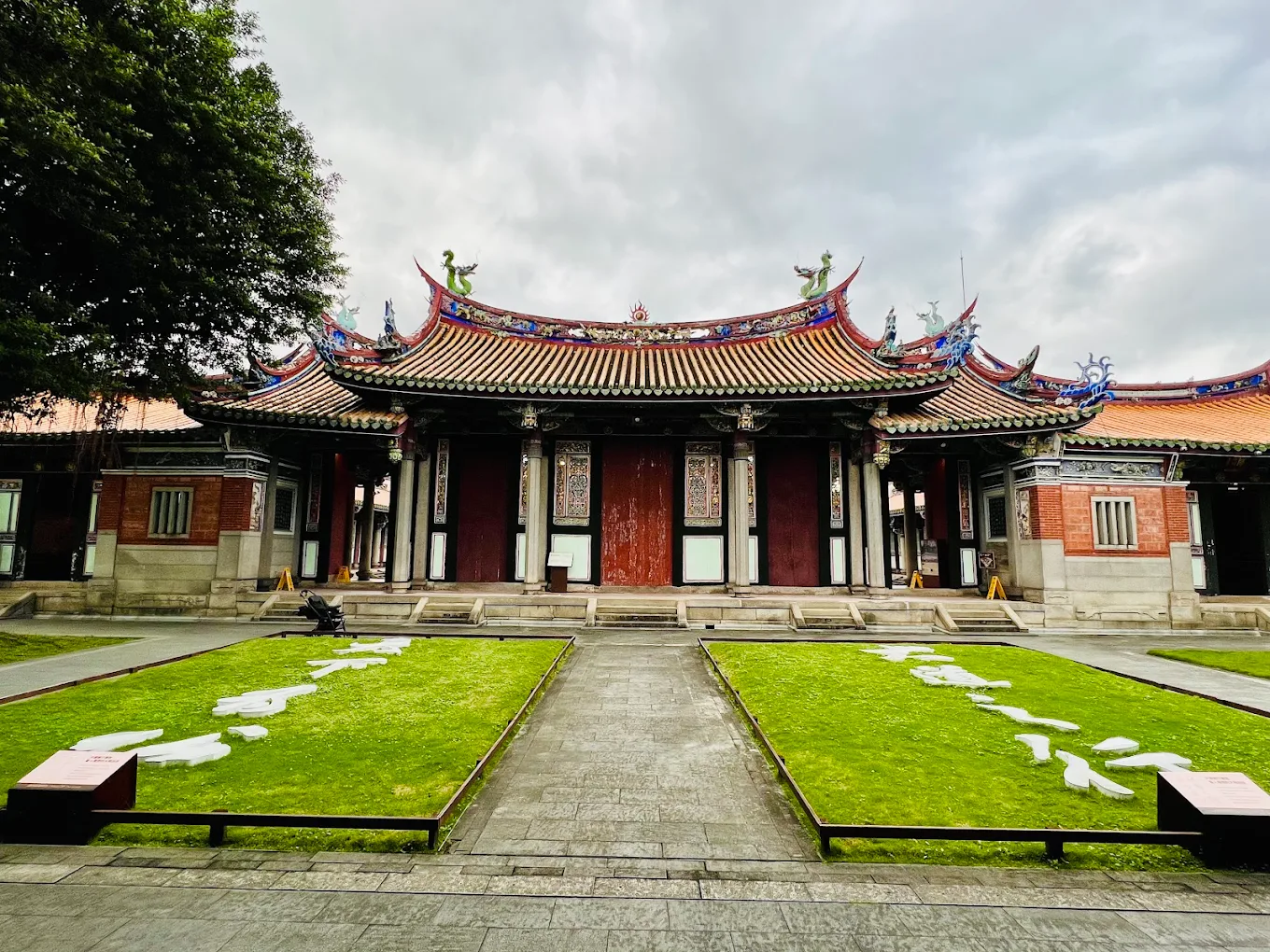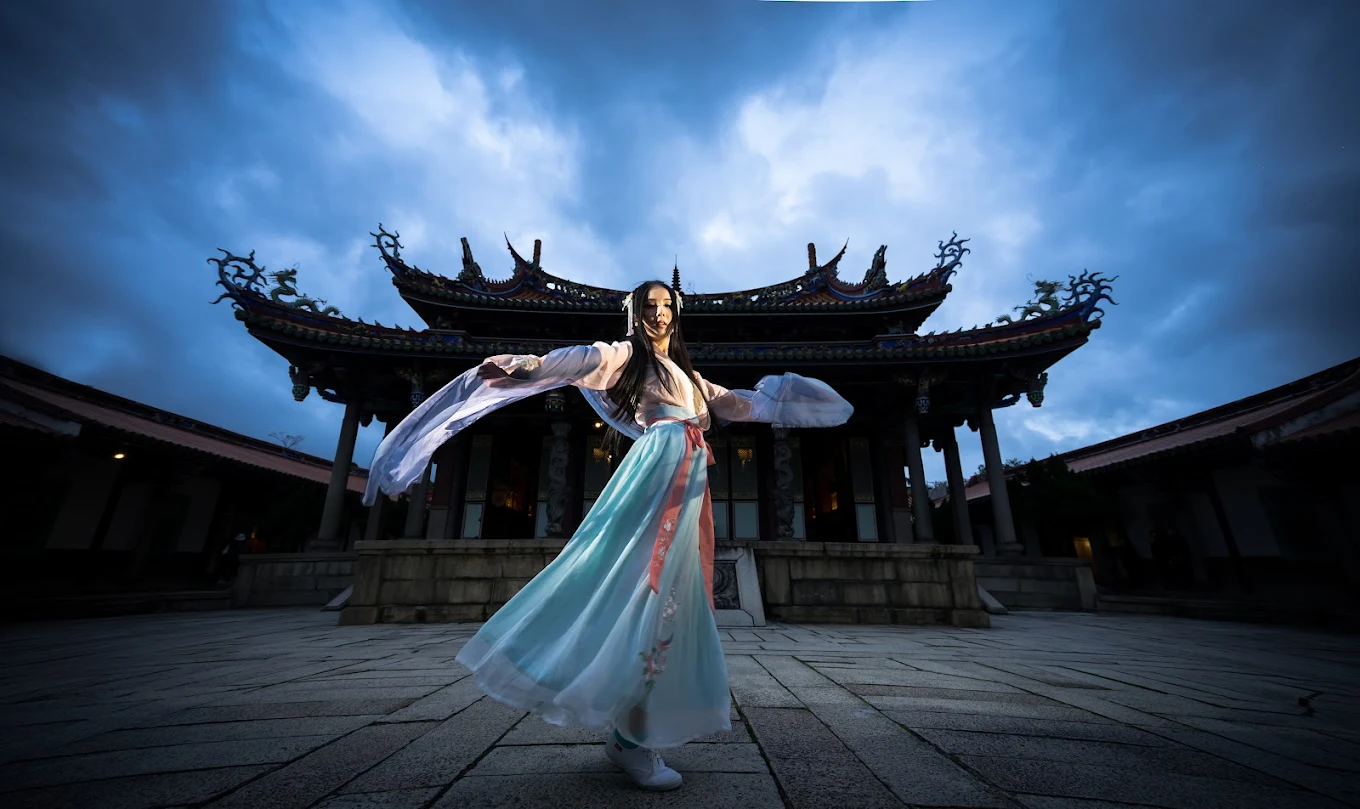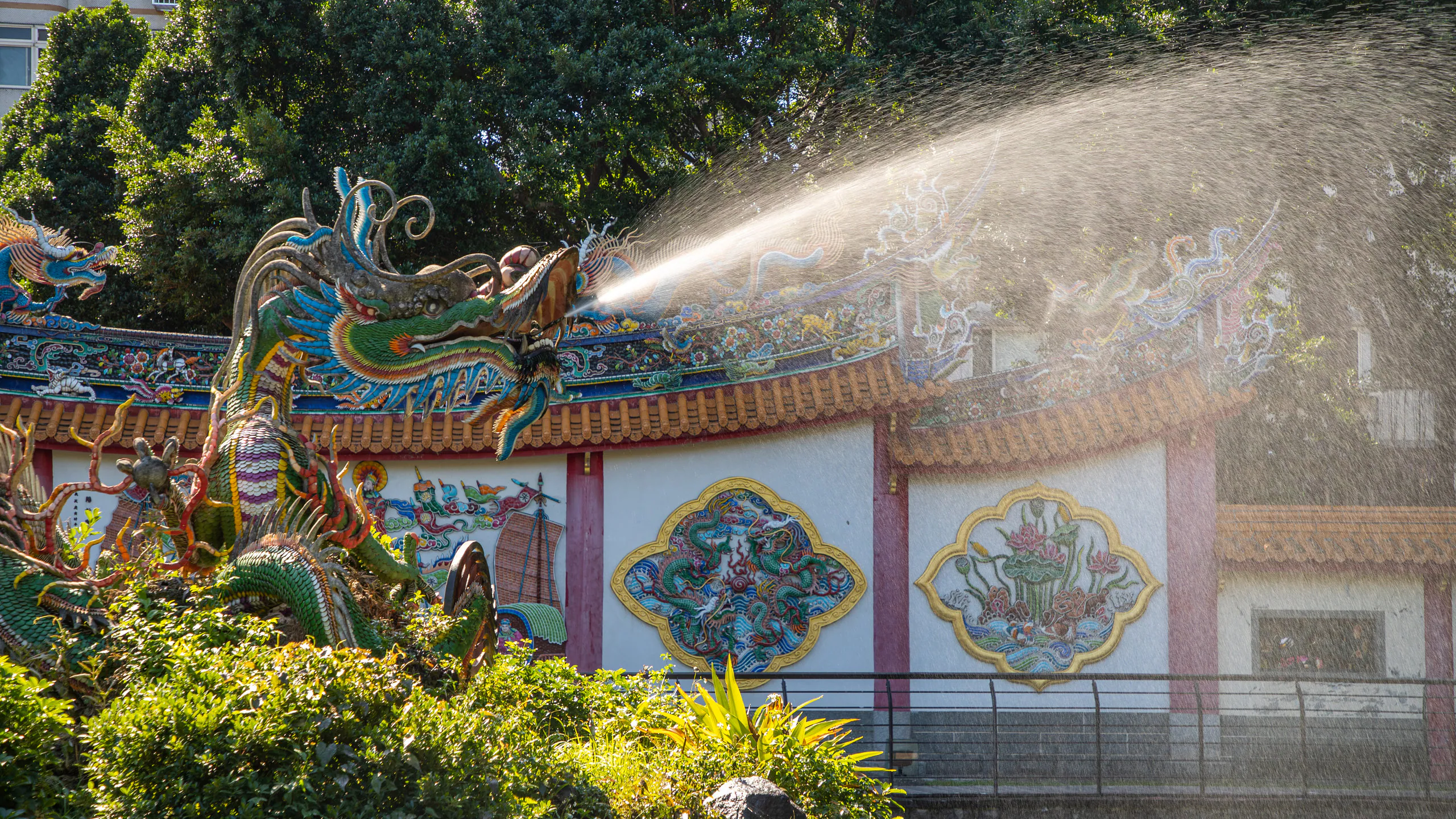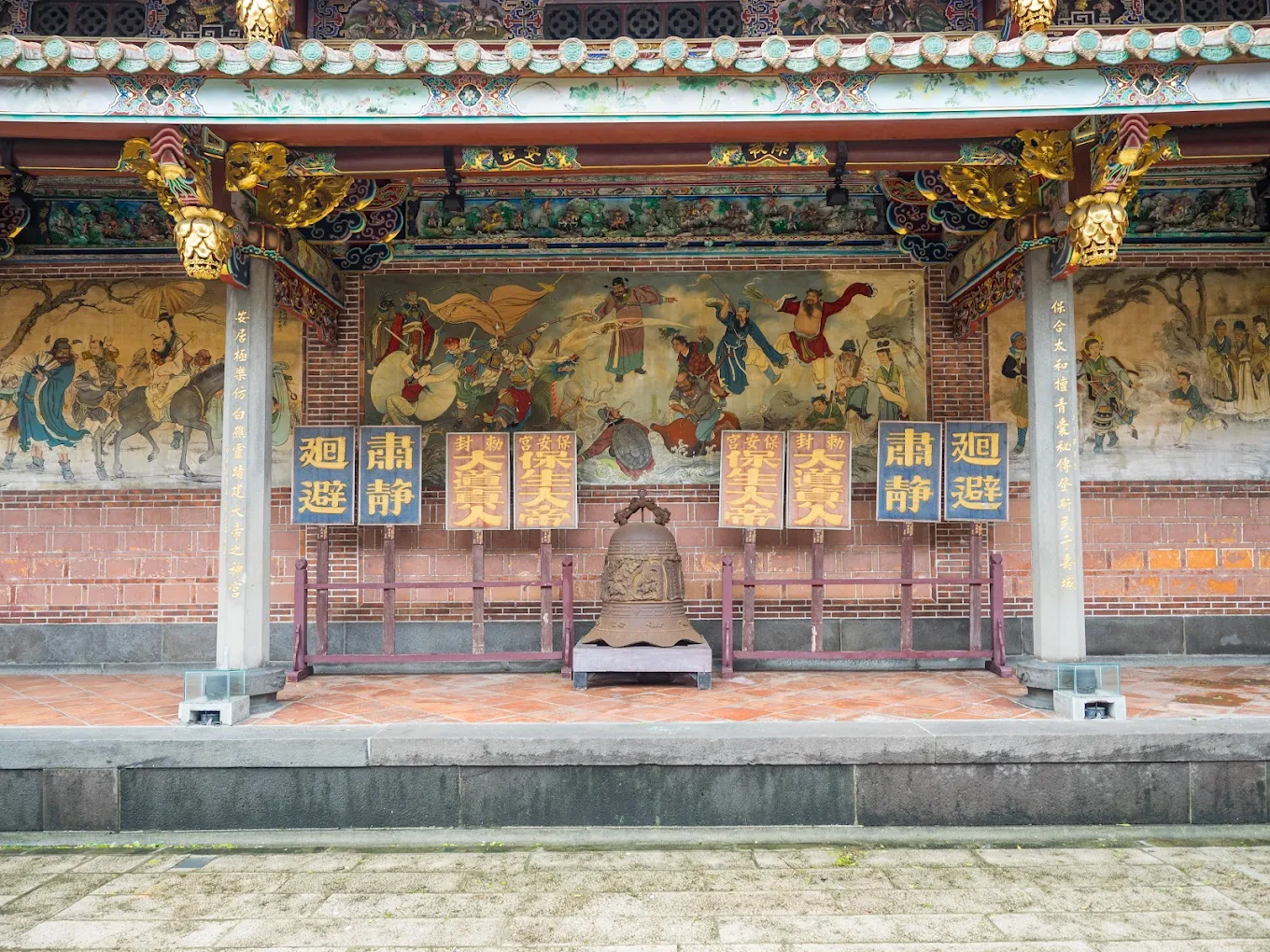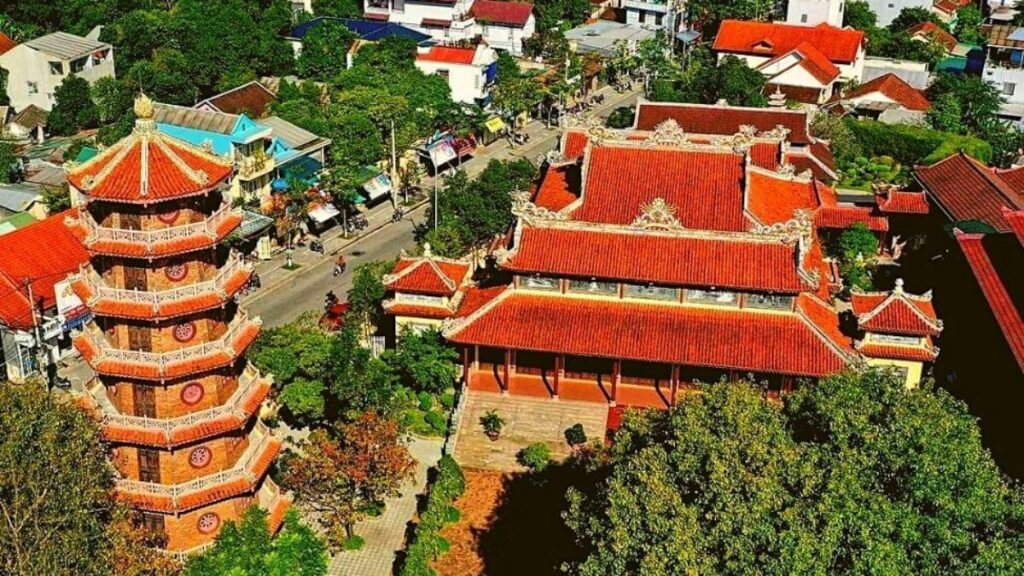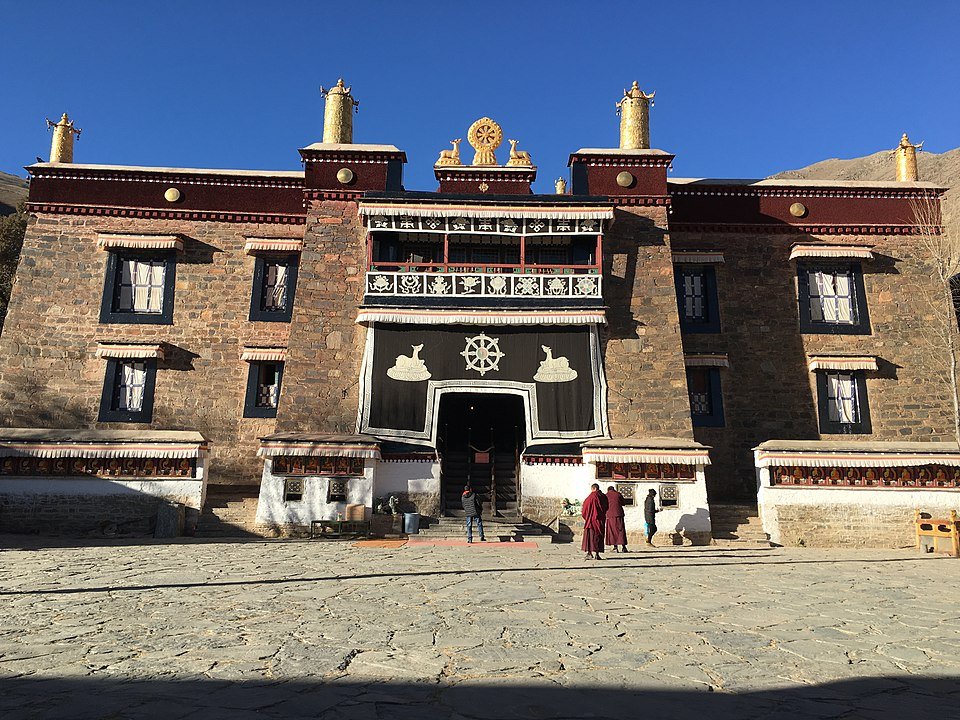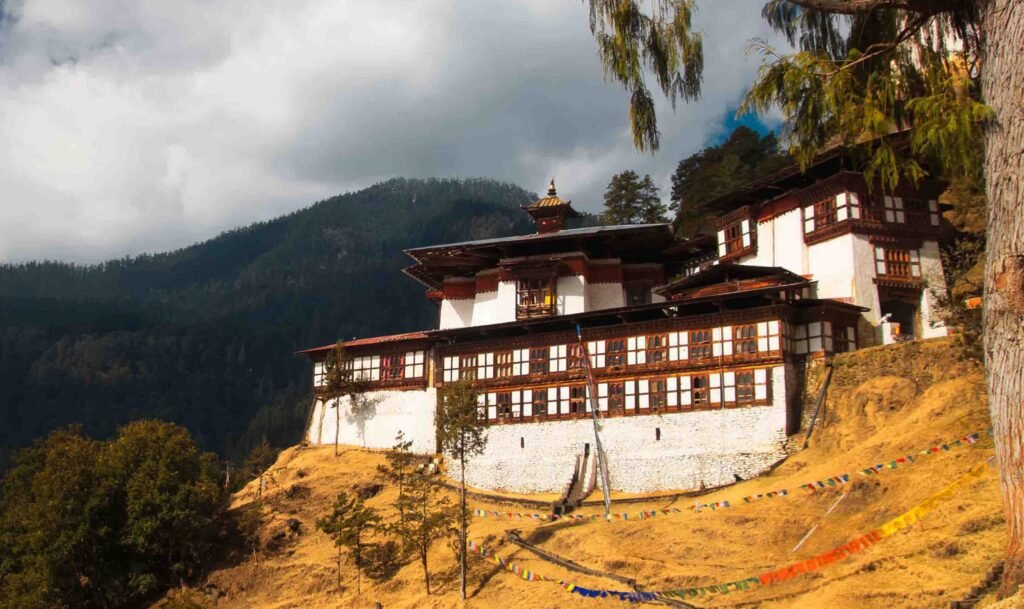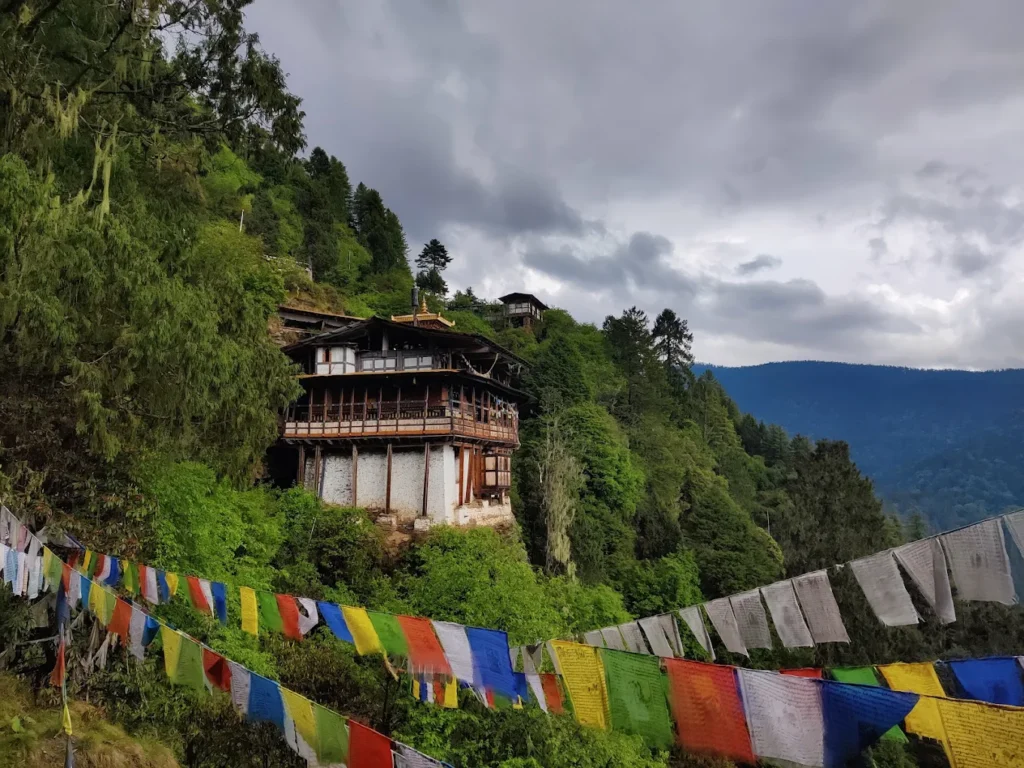Taipei Confucius Temple: The Fujianese Bastion of Wisdom in Datong District
In Taipei’s Datong District, the Taipei Confucius Temple radiates serenity, with bamboo leaves rustling softly and sandalwood incense wafting through its open courtyard. Founded in 1879 by Fujianese settlers, this Confucian shrine honors Kongzi [Kǒngzǐ], known as Confucius, the 5th-century BCE philosopher whose teachings on ethics, education, and social harmony shape Taiwan’s cultural ethos. Confucius, revered for advocating moral integrity and lifelong learning, is represented by a simple wooden tablet in the Dacheng Hall, symbolizing spiritual humility. Unlike Longshan Temple’s vibrant syncretism or Baoan Temple’s medicinal focus, the temple’s minimalist stone reliefs and grey-tiled roofs reflect Confucian restraint. The annual Confucius Birthday Ceremony on September 28 fills the air with traditional music, drawing scholars and families to offer prayers. Cultural travelers are invited to explore Taipei’s intellectual heritage along Dalong Street, where wisdom and tradition converge in a tranquil embrace.
Overview and Significance
Introduction to Taipei Confucius Temple
The Taipei Confucius Temple, nestled in Taipei’s Datong District, stands as a beacon of Confucian philosophy, emphasizing ethical conduct, scholarly pursuit, and social harmony. Established in 1879 by Fujianese immigrants, it venerates Confucius, whose teachings in the Analects promote virtue and education as societal pillars. Confucian philosophy, rooted in 5th-century BCE China, advocates for moral integrity, respect for elders, and continuous learning, shaping Taiwan’s educational values. The temple’s minimalist design, with stone courtyards and subtle reliefs, contrasts Longshan Temple’s ornate pillars and Baoan Temple’s vivid murals, embodying scholarly simplicity. For cultural travelers, the Taipei Confucius Temple offers a profound glimpse into Taipei’s intellectual legacy and Fujianese heritage.
Historical Journey
Built by Quanzhou Fujianese settlers during Qing rule, the Taipei Confucius Temple emerged as an educational hub for Taipei’s early elites. Completed in 1884 after community fundraising, it endured Japanese occupation (1895–1945), when it was briefly repurposed as a school, and post-war urban expansion. A 1930 reconstruction by architect Lu Yen restored its Fujianese style, emphasizing open courtyards and stonework. Designated a national monument in 1986, the temple reflects Taiwan’s commitment to Confucian values, verified by historical archives, making it a must-visit for those exploring Taipei Confucius Temple’s history.
Cultural Significance
The Taipei Confucius Temple anchors Datong’s intellectual identity, hosting the Confucius Birthday Ceremony on September 28, where traditional music and rice offerings honor the sage. The Zhongyuan Festival [Hungry Ghost Festival], a Taoist-influenced rite to appease ancestral spirits, features modest offerings under bamboo groves, distinct from Baoan Temple’s lavish feasts. Its educational workshops draw global scholars, particularly from Japan and South Korea, fostering cross-cultural dialogue. The temple’s role in Taipei’s school curriculum, teaching Confucian ethics, underscores its cultural weight, inviting travelers to engage with Taipei Confucius Temple’s philosophical roots.
Unique Legacy
The temple’s dedication to Confucian education, symbolized by its Dacheng Hall tablet, sets it apart from Longshan’s syncretic breadth or Baoan’s healing focus. Its minimalist stone reliefs, depicting scholarly motifs, reflect Fujianese restraint and Confucian humility. Philosophically, the Taipei Confucius Temple balances wisdom and duty, offering travelers insights into Taiwan’s intellectual traditions. Its educational legacy, tied to Fujianese scholarly heritage, distinguishes it as a bastion of learning in Taipei.
Community and Global Impact
The Taipei Confucius Temple unites Datong’s residents through educational events and ceremonies, with locals gathering in Dalongdong Park post-rituals. Free workshops on Confucian ethics attract international scholars, strengthening global ties. Its role in cultural preservation, recognized by the Ministry of Culture, fosters appreciation of Confucianism worldwide. Travelers can witness this community spirit, connecting with Taipei Confucius Temple’s intellectual vibrancy and global influence.
Historical Anecdotes
A 19th-century scholar, passing imperial exams after praying at the temple, dedicated a calligraphic scroll now displayed in the east wing, as noted in archives. Architect Lu Yen’s 1930 restoration used Fujianese stone to honor tradition, a story preserved in temple records. During Japanese rule, the temple secretly hosted Confucian lectures, safeguarding cultural identity. These tales deepen the Taipei Confucius Temple’s allure for cultural explorers seeking its history.
Social Role
The temple hosts Confucian study groups and ethics workshops, fostering community education. Ceremonial feasts on Confucius’ birthday feature rice cakes shared under bamboo groves, reflecting communal harmony. Its integration into Taipei’s school curriculum, teaching Confucian values, highlights its civic impact. Travelers can engage with these initiatives, experiencing the Taipei Confucius Temple’s role as Datong’s intellectual heartbeat.
Artistic Influence
The temple’s stone reliefs, depicting books and inkstones, have inspired Datong’s calligraphers, influencing local art. Its 1930 reconstruction set a standard for minimalist Confucian design, shaping Taipei’s cultural architecture. Unlike Baoan Temple’s vibrant murals, the Taipei Confucius Temple’s muted aesthetic draws art enthusiasts, offering a serene visual journey through Taiwan’s scholarly heritage.
From the scholarly legacy of the Taipei Confucius Temple to its tranquil courtyards, its history shapes a sanctuary of wisdom. Cultural travelers, stepping into the Dacheng Hall, are invited to explore its architectural serenity and philosophical depth, where every tablet tells a story of learning.
Architectural and Spiritual Features
Iconic Design
The Taipei Confucius Temple’s siheyuan layout, with four open courtyards, aligns on a north-south axis, symbolizing cosmic order and Confucian balance. The Dacheng Hall, the main sanctuary, features muted stone reliefs of scholarly motifs, glowing softly under Taipei’s midday sun. Its grey-tiled roof, devoid of ornate figurines, reflects Fujianese restraint, contrasting Longshan Temple’s vibrant curves. Traditional wooden joints, avoiding nails, showcase craftsmanship verified by temple records, captivating travelers with understated elegance.
Key Structures
The temple comprises the Dacheng Hall, east and west wings, and the Chongsheng Shrine for ancestral veneration. The Dacheng Hall, with a 7-kaijian façade, houses Confucius’ wooden tablet, while wings display scholarly exhibits. A gatehouse with a bell tower adds rhythmic chimes, and bamboo-lined courtyards foster serenity. This minimalist design, distinct from Baoan Temple’s colorful halls, invites reflection at the Taipei Confucius Temple.
Worshipped Statues/Deities
The Dacheng Hall enshrines Kongzi [Kǒngzǐ], known as Confucius, represented by a wooden tablet, symbolizing his spiritual presence. Confucius, a 5th-century BCE philosopher, taught moral integrity, respect for elders, and lifelong learning, guiding devotees to ethical lives, a core Confucian principle verified by sectarian records. Other figures include:
- Mencius (Mengzi): Philosopher, his tablet in the east wing symbolizes wisdom.
- Zengzi: Disciple, his tablet represents filial piety.
- Yan Hui: Disciple, his tablet embodies humility.
- Seventy-Two Sages: Tablets honor Confucius’ students, promoting scholarship.
These tablets, verified by temple signage, offer travelers insights into the Taipei Confucius Temple’s reverence for learning.
Materials and Techniques
The temple uses grey stone, teak, and bamboo. The Dacheng Hall’s stone reliefs, carved by Fujianese artisans, depict scholarly scenes. Teak beams, joined by dovetail techniques, ensure durability, while the roof’s grey tiles emphasize simplicity. These materials, verified by architectural studies, highlight the Taipei Confucius Temple’s minimalist craftsmanship.
Signature Elements
The Dacheng Hall’s wooden tablet for Confucius, unique in Taipei, symbolizes spiritual humility, unlike Longshan’s ornate statues or Baoan’s medicinal figures. Stone reliefs of books and inkstones reflect Fujianese scholarly traditions, verified by art records. These elements draw travelers seeking intellectual serenity at the Taipei Confucius Temple, distinct from Xingtian Temple’s vibrant motifs.
Lesser-Known Features
Bamboo carvings in the east wing symbolize resilience, while calligraphic boards quote the Analects, offering wisdom. The courtyard’s stone incense burner, etched with scrolls, hums with offerings, its smoke curling skyward. Grey tile patterns, unlike Baoan’s colorful roofs, provide subtle beauty for travelers to discover at the Taipei Confucius Temple.
Preservation Efforts
Community-funded restorations post-1930 preserved the temple’s structure, with 1990s roof repairs using Fujianese stone. A 2018 initiative reinforced beams, and reduced incense use protects air quality, per Taiwan’s Environmental Agency. These efforts ensure the Taipei Confucius Temple’s longevity, inviting future travelers to its serene halls.
Environmental Integration
The temple’s fēng shuǐ, a Mandarin concept of spatial harmony aligning buildings with natural energy flows, guides its south-facing entrance to harmonize with Datong’s landscape, channeling scholarly energy. Bamboo groves and stone paths create a tranquil oasis, their rustle fostering reflection. This harmony, tied to Fujianese traditions, captivates travelers seeking peace amidst Taipei’s bustle, distinct from Longshan’s riverine setting.
Artisan Narratives
Architect Lu Yen, overseeing the 1930 reconstruction, sourced Fujianese stone to preserve cultural fidelity, as noted in temple archives. A carver’s account describes etching scholarly reliefs by lamplight, honoring Confucius’ legacy. These stories enrich the Taipei Confucius Temple’s allure for art enthusiasts exploring its craftsmanship.
Symbolic Details
Grey tiles symbolize humility, while bamboo motifs denote scholarly resilience. Unlike Longshan’s protective dragons, the temple’s reliefs emphasize learning, offering philosophical depth verified by art studies. The open courtyards reflect Confucian openness to wisdom, inviting travelers to ponder at the Taipei Confucius Temple.
Landscape Integration
The bamboo-lined courtyard fosters a meditative ambiance, its stone paths guiding reflection. Positioned near Dalongdong Park, the temple ties to Datong’s cultural history, offering travelers an environmental and intellectual synergy distinct from Baoan’s urban vitality.
As the stone reliefs of the Taipei Confucius Temple gleam, its architecture sets the stage for its scholarly rituals. Cultural travelers, moving from the Dacheng Hall’s serenity to ceremonial chants, can immerse themselves in the practices that define this bastion of wisdom.
Rituals and Practices
Daily Sacred Rites
Each morning, lay practitioners light incense at the Dacheng Hall, their glow illuminating Confucius’ tablet. Devotees offer rice and fruits at the courtyard’s stone burner, their aroma mingling with bell chimes. Daily recitations of the Analects, at 7:00 AM and 4:00 PM, fill the Taipei Confucius Temple with scholarly chants, their cadence drawing travelers into its intellectual rhythm.
Unique Practices
Worshippers offer calligraphic prayers to Confucius, seeking wisdom for exams, a Fujianese rite verified by temple guides. At the Dacheng Hall, devotees write aspirations on scrolls before placing them at the tablet, a practice distinct from Baoan’s herbal rituals or Longshan’s divination blocks. This scholarly focus captivates travelers seeking intellectual blessings at the Taipei Confucius Temple.
Festival Traditions
The Confucius Birthday Ceremony on September 28 transforms the Taipei Confucius Temple with traditional sheng music and rice offerings, honoring the sage’s legacy. The Zhongyuan Festival [Hungry Ghost Festival], a Taoist-influenced rite, features modest ancestral offerings under bamboo groves, distinct from Longshan’s vibrant feasts. These ceremonies, verified by temple schedules, invite travelers to join Taipei Confucius Temple’s philosophical pulse.
Visitor Engagement
Travelers can participate in scroll-writing rituals, crafting prayers with guidance from lay practitioners. Free guided tours explain Confucian ceremonies and Analects recitations, allowing respectful participation. These experiences, verified by tourism boards, immerse cultural travelers in the Taipei Confucius Temple’s scholarly traditions, fostering a deeper connection.
Spiritual Community Roles
Lay practitioners [jūshì], devotees balancing secular and Confucian study, lead recitations and workshops, as Confucianism emphasizes lay practice over monasticism, verified by temple records. They organize ethics classes, bridging community and philosophy. Their roles offer travelers insights into the Taipei Confucius Temple’s intellectual structure and Datong’s communal spirit.
Interfaith Connections
The temple’s Confucian focus integrates Taoist ancestral rites during the Zhongyuan Festival, reflecting subtle syncretism. Unlike Longshan’s Buddhist-Taoist blend or Baoan’s medicinal rites, the Taipei Confucius Temple prioritizes ethical philosophy, fascinating travelers exploring Taiwan’s pluralistic faith through its scholarly lens.
Ritual Symbolism
Rice offerings symbolize prosperity, reflecting Confucian communal values. Bamboo branches at the altar denote resilience, verified by sectarian records. These symbols, distinct from Baoan’s healing motifs, deepen the Taipei Confucius Temple’s rituals, offering travelers philosophical reflections on wisdom and duty.
Seasonal Variations
The Confucius Birthday in autumn features musical performances, while spring rites emphasize educational prayers for students. The Zhongyuan Festival brings ancestral offerings in summer. These shifts, verified by temple schedules, create varied experiences for travelers visiting the Taipei Confucius Temple across seasons.
Monastic/Community Life
Lay practitioners lead morning recitations, while community members, from scholars to families, maintain the temple’s grounds, their discussions filling Dalongdong Park post-rituals. Evening ethics classes draw local youth, fostering Confucian values. This vibrant life, documented in community records, invites travelers to witness the Taipei Confucius Temple’s role as Taipei’s intellectual heart.
From the scholarly chants of the Taipei Confucius Temple, cultural travelers can transition to practical tips for experiencing its rituals. The temple’s philosophical energy, paired with Datong’s lively streets, offers a seamless blend of intellectual and cultural exploration.
Visitor Information
Navigating to Taipei Confucius Temple
The Taipei Confucius Temple sits in Datong District, a 7-minute walk from Yuanshan MRT Station. Exiting via Exit 2, travelers pass Dalongdong Park, where locals practice tai chi under banyan trees. The temple’s grey-tiled roof emerges along Dalong Street, lined with tea shops and bookstalls, their earthy scents guiding visitors to the Taipei Confucius Temple’s serene courtyard.
Address of Taipei Confucius Temple
The temple’s full address is No. 275, Dalong Street, Datong District, Taipei City, Taiwan. This central location, verified by Taipei’s Tourism Bureau, places the Taipei Confucius Temple in Datong’s cultural core, accessible for travelers exploring Taipei’s intellectual heritage.
Visiting Hours and Etiquette
The Taipei Confucius Temple opens daily from 8:30 AM to 9:00 PM, with extended hours during the Confucius Birthday Ceremony. Visitors should wear modest clothing, covering shoulders, and avoid loud conversations to respect devotees. Bowing at the Dacheng Hall entrance, per temple guidelines, ensures travelers blend into the Taipei Confucius Temple’s scholarly atmosphere.
Transport Options
The Taipei MRT Red Line’s Yuanshan Station (Exit 2) offers the easiest access, a 7-minute walk away. Taipei Main Station, 15 minutes south, serves multiple lines, while buses like Route 41 stop at Dalong Street. Taxis or Uber, familiar with “Taipei Confucius Temple” in Datong, provide convenience. These options, verified by Taipei Metro, suit varied traveler needs.
Accessibility and Safety
The Taipei Confucius Temple offers wheelchair ramps at the main gate and flat courtyard paths, with staff assistance for mobility-impaired visitors, per tourism board records. Dalong Street’s light traffic ensures safety, though travelers should stay hydrated in Taipei’s humidity, ensuring a comfortable visit to the Taipei Confucius Temple.
Amenities and Surroundings
On-site restrooms and shaded benches provide comfort, while nearby tea stalls offer jasmine brews, a Fujianese tradition. Dihua Street, a 10-minute walk, serves rice noodles and dried fruits, their scents wafting through the air. These amenities, verified by local guides, enhance the sensory experience around the Taipei Confucius Temple.
Immersive Visitor Tips
- Art Lovers: Study the Dacheng Hall’s stone reliefs at noon, when light highlights scholarly motifs.
- Meditators: Sit by the bamboo grove during evening recitations, letting rustles calm the mind.
- History Buffs: Join a free tour to learn about the 1930 reconstruction and Japanese-era lectures.
- Festival Enthusiasts: Visit on September 28 for the Confucius Birthday Ceremony’s traditional music.
Cultural Immersion Opportunities
Travelers can join scroll-writing workshops during the Confucius Birthday, crafting prayers under lay practitioners’ guidance, their ink scent filling the air. Participating in Analects recitations, with volunteer explanations, offers a hands-on rite. Evening ethics classes, open to visitors, teach Confucian principles, fostering connection. These activities, verified by temple schedules, immerse travelers in the Taipei Confucius Temple’s scholarly traditions, creating lasting memories.
Nearby Cultural Experiences
Dihua Street, a 10-minute walk, showcases Qing-era shophouses, their wooden facades contrasting the temple’s serenity. Baoan Temple, 7 minutes away, offers vibrant medicinal rituals, distinct from Confucian restraint. Dalong Night Market, a 5-minute walk, serves Fujianese snacks like peanut rolls, verified by Taipei’s Tourism Bureau, enriching Datong’s cultural tapestry for explorers.
Photography Tips
Capture the Dacheng Hall’s reliefs at midday, their scholarly motifs glowing against grey stone, using a wide-angle lens. Photograph the incense burner during ceremonies, its smoke weaving delicate patterns, but avoid flash to respect devotees. The bamboo grove, lit by soft evening light, offers tranquil shots, per local photographers, ensuring travelers document the Taipei Confucius Temple’s beauty respectfully.
Engaging in scroll-writing at the Taipei Confucius Temple opens a window to its philosophical depth. Cultural travelers, having joined rituals and explored Datong’s lanes, can reflect on the temple’s intellectual and cultural significance, rooted in Fujianese scholarly traditions.
Cultural and Spiritual Insights
Religious Philosophy
The Taipei Confucius Temple’s Confucian philosophy emphasizes moral integrity, respect for elders, and lifelong learning. Confucius, as Kongzi, taught that ethical conduct and education foster social harmony, principles guiding devotees in daily life. Unlike Longshan’s Buddhist-Taoist syncretism, Confucianism prioritizes lay practice, shaping Taiwan’s educational ethos. This philosophy, verified by sectarian councils, offers travelers a profound lens into the Taipei Confucius Temple’s intellectual spirituality.
Environmental Spirituality
The temple’s feng shui alignment, with its south-facing entrance, harmonizes with Datong’s landscape, channeling scholarly energy. Bamboo groves and stone paths create a serene retreat, their rustle fostering contemplation. This environmental connection, rooted in Fujianese traditions, invites travelers to find tranquility amidst Taipei’s urban pulse, distinct from Baoan’s vibrant setting.
Artistic Symbolism
The Dacheng Hall’s stone reliefs, depicting books and inkstones, symbolize scholarly pursuit, reflecting Confucian values. Bamboo carvings denote resilience, while grey tiles signify humility, verified by art studies. Unlike Longshan’s protective dragons, these motifs emphasize learning, captivating art enthusiasts with the Taipei Confucius Temple’s philosophical depth.
Community Resilience
Community-funded restorations post-1930, including 1990s tile repairs, reflect Confucian duty. Stories of scholars donating scrolls during Japanese rule, preserved in archives, highlight Datong’s resilience. Travelers witness this spirit in daily rituals, where devotees maintain the temple with care, embodying the Taipei Confucius Temple’s enduring legacy.
Environmental Stewardship
Reduced incense use since 2018, protecting air quality, aligns with Confucian respect for harmony, per Taiwan’s Environmental Agency. Bamboo plantings in the courtyard, supported by rainwater systems, enhance sustainability. These efforts, balancing heritage and ecology, inspire travelers to reflect on the Taipei Confucius Temple’s environmental ethos.
Meditative/Contemplative Practices
Morning Analects recitations, led by lay practitioners, focus on Confucian wisdom, with participants chanting under bamboo groves. Evening ethics classes, open to visitors, foster mindfulness through discussion. These practices, verified by temple schedules, offer travelers serene moments in the Taipei Confucius Temple’s scholarly heart.
Cultural Narratives
A legend tells of a student passing exams after praying at the temple, dedicating a scroll in gratitude. Another recounts Lu Yen’s 1930 restoration, using Fujianese stone to honor Confucius. These tales, preserved in oral histories, enrich the Taipei Confucius Temple’s allure for story-seeking travelers.
Historical Context
The temple’s 1879 founding reflects Fujianese migration during the Qing Dynasty, driven by trade and scholarship. Its role in preserving Confucian lectures during Japanese rule ties it to Datong’s cultural resilience. This context, verified by academic journals, deepens travelers’ understanding of the Taipei Confucius Temple’s place in Taipei’s history.
Modern Cultural Connections
The Taipei Confucius Temple thrives in modern Taipei, with youth sharing ethics classes on social media, boosting its global reach. The Confucius Birthday Ceremony draws students crafting calligraphic prayers, while international scholars post reflections online. These connections, verified by tourism data, highlight the Taipei Confucius Temple’s role in Taipei’s cultural vibrancy, engaging tech-savvy travelers.
From the philosophical depths of the Taipei Confucius Temple to its modern vitality, its insights inspire exploration. Cultural travelers, enriched by its scholarly legacy, are beckoned to experience its stone reliefs and intellectual heart, a journey into Taipei’s wisdom.
Why You Have to Visit
The Taipei Confucius Temple, with its minimalist reliefs and Confucius’ wooden tablet, is Taipei’s bastion of wisdom, weaving Fujianese scholarship into Datong’s vibrant streets. Its Confucian focus on ethics and education offers a serene contrast to Longshan’s syncretism or Baoan’s healing rites, embodying Taiwan’s intellectual heritage. Preserved through centuries of change, the temple pulses with community spirit, its ceremonies and workshops fostering learning. For cultural travelers, visiting the Taipei Confucius Temple means joining scroll-writing rituals, reciting the Analects, or exploring its tranquil courtyards, each moment steeped in Taipei’s history. Discover this scholarly sanctuary to connect with Taiwan’s past and present, where every bamboo leaf whispers tales of wisdom and duty.
